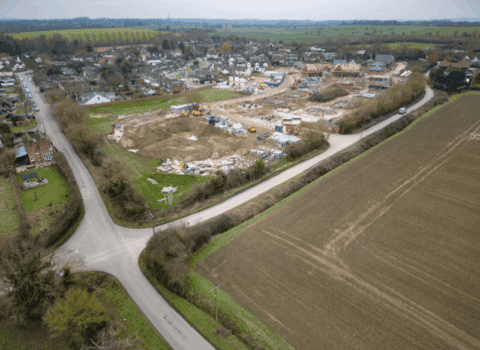Contact our offices
Main office
COLBURN
5 & 6 BAILEY COURT
COLBURN BUSINESS PARK
RICHMOND
NORTH YORKSHIRE
DL9 4QL
Estate Agency Offices are located in
BARNARD CASTLE, BOROUGHBRIDGE & RICHMOND
Residential Management Team
Our Offices
- Alnwick
01665 568310
Email Officealnwick@gscgrays.co.uk - Barnard Castle
01833 637000
Email Officebarnardcastle@gscgrays.co.uk - Boroughbridge
01423 590500
Email Officeboroughbridge@gscgrays.co.uk - Chester-Le-Street
0191 3039540
Email Officechester-le-street@gscgrays.co.uk - Colburn
01748 897630
Email Officecolburn@gscgrays.co.uk - Driffield
01377 337180
Email Officedriffield@gscgrays.co.uk - Hamsterley
01388 487000
Email Officehamsterley@gscgrays.co.uk - Hexham
01434 611565
Email Officehexham@gscgrays.co.uk - Kirkby Lonsdale
01524 880320
Email Officekirkbylonsdale@gscgrays.co.uk - Penrith
01768 597005
Email Officepenrith@gscgrays.co.uk

IS BNG AN UNMISSABLE OPPORTUNITY FOR LANDOWNERS?
Biodiversity Net Gain (BNG) becomes a compulsory requirement for most developments from January 2024. Introduced by the Environment Act 2021, BNG requires developers to deliver an uplift in the biodiversity value of the land by at least 10%, compared to pre-development levels. It is a step further than simply ‘offsetting’ biodiversity loss and places a burden on developers to demonstrate that their projects are accounting for their environmental impact (albeit within a narrowly defined set of parameters).
Although developments must try to avoid harm and retain or create habitats on site where possible, some developers will only be able to meet the required 10% uplift in biodiversity by funding habitat creation or restoration on other land holdings. This creates an opportunity for landowners to be paid for delivering projects that result in an uplift in biodiversity.
ASSESSING THE SIZE OF THE OPPORTUNITY FOR LANDOWNERS
The market for biodiversity units is still very young, and it is difficult to predict the financial opportunity that BNG might present.
DEFRA are currently expecting units to trade for between £25,000 and £30,000 per unit, but others suggest prices could rise well beyond this if demand is tight in the early days of the market.
This uncertainty means it has been difficult to assess whether the financial returns would be adequate to make BNG attractive for landowners, particularly given the level of risk, loss of flexibility and long-term liability that are likely to be involved.
A proper assessment of costs and benefits over the lifetime of the project, which will be a minimum of 30 years, should be a key part of a landowner’s decision-making process.
It is also important to consider how a biodiversity project might compare to alternative land uses. Early adopters might be willing to speculate and engage with the market early, but many will wish to wait and see what prices and terms might be achieved before they commit.
DEFRA’s publication of the provisional prices for their Statutory Biodiversity Credits is welcome and has the potential to accelerate the private market by incentivising developers to devise plans to meet BNG requirements before the looming deadline.
LANDOWNER CONSIDERATIONS
Earlier in the season, your hay crop might have yielded around 12 tonnes/acre and been worth £50/tonne. By comparison, as residential development land you could reasonably expect to achieve 12 houses/acre at £50,000/plot.
As demand for biodiversity units increases and a market price emerges, landowners may soon have a clearer picture of the potential value of biodiversity projects on their land. For those interested in the opportunity, there are some important factors to consider:
1. Long term commitment
BNG projects require a minimum 30-year commitment and in many cases will result in land being subject to ongoing protections even after the agreement has ended. Consider how this might impact your land management and enterprises now, and for future generations.
2. Financial implications
Habitat banks or developers might seem to be offering large sums for BNG projects, but remember it is important to take costs into account and break income down to a per hectare annual basis so that it can be properly compared with other land uses.
The project might also impact on the capital value of the land and result in long term liability or increased tax burdens.
3. Strategy
Rather than looking at emerging markets in isolation, try to integrate and understand nature markets within your wider strategy.
What is your vision for 2030? 2050? Will this opportunity help or hinder your progress towards your wider goals?
A NEW APPROACH FOR DEVELOPERS
BNG provides a new approach to development which pushes the environment up the hierarchy of decision-making to ensure that land is left in a better state than before the development took place through the implementation of nature-based solutions.
This will enable developers to use their BNG requirements and delivery as a marketing tool to showcase their green credentials to enhance sales to an increasingly environmentally aware customer base and to fulfil their environmental and social conscience to their board and shareholders.
As developers start to prepare for the forthcoming deadline, and local authorities provide greater clarity on their regional objectives, we will see fresh opportunities for landowners in an increasingly volatile world where land can provide a sustainable solution.
GSC Grays has the expertise to provide professional services to navigate BNG for both landowners and developers.









